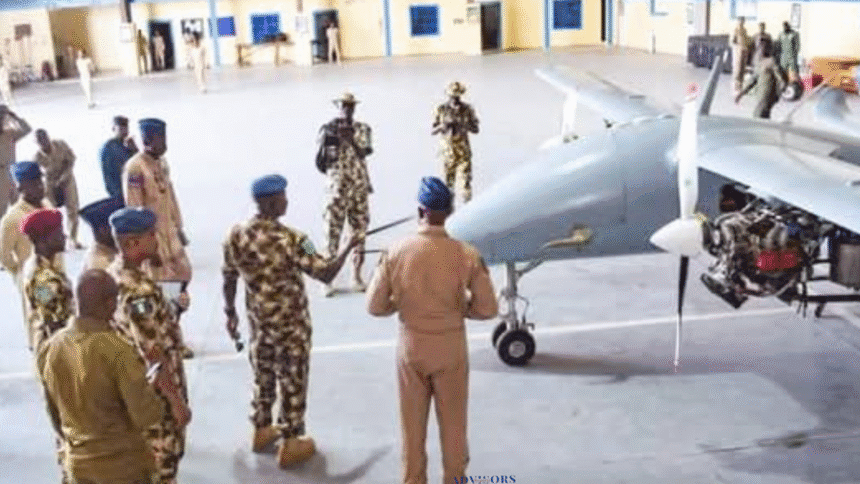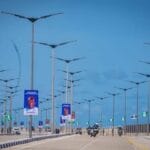… as 33 security agents, 4 Pakistani nationals arrested for aiding insurgents
Oredola Adeola
It was Thomas Sankara, former President of Burkina Faso and iconic Pan-African revolutionary, who said, “If we don’t control our own narrative, others will write it for us — and it will not be in our favour.”
This quote resonates deeply with the current fragile state of Nigeria’s territorial integrity, which has become a matter of growing national concern.
One may argue that amid emerging security challenges, the gallant efforts of the Nigerian Armed Forces have led to the restoration of order in parts of the Northwest previously held by bandits, significantly reducing threats to lives and livelihoods.
These gains, however, are being undermined by internal sabotage — a troubling reality made worse by the involvement of foreign-backed operatives. The presence of in-house moles, allegedly supported by external intelligence networks, casts a long shadow over the progress recorded on the battlefield.
In his midterm anniversary statement, President Bola Tinubu described the national security infrastructure as increasingly responsive and reliable in protecting lives and property.
Yet, the recent arrests of 18 soldiers and 15 police officers, accused of supplying weapons to insurgents and aiding criminal syndicates, speak volumes about the deep-rooted issues still plaguing Nigeria’s security apparatus.
While the President reaffirmed his administration’s commitment to safeguarding citizens and preserving a peaceful way of life, these developments raise serious concerns.
Despite commendations for improved inter-agency collaboration, intelligence-led operations, and enhanced welfare for security personnel, the outsourcing of intelligence and betrayal by insiders leave a bitter aftertaste.
Such contradictions demand a more introspective approach to national defense — one that prioritizes homegrown intelligence and integrity within the ranks over overreliance on foreign partnerships.
Alarming revelations in recent days have shown that citizens of the very nation entrusted with supplying military intelligence and hardware to the Nigerian Armed Forces are, at the same time, covertly empowering the insurgents we are fighting.
In May 2021, Nigeria inducted three JF-17 Thunder fighter jets into its Air Force, marking a significant step in the country’s ongoing efforts to modernize its military capabilities.
These jets, jointly developed by China and Pakistan, were officially delivered during a ceremony celebrating the 57th anniversary of the Nigerian Air Force at Makurdi Air Base.
The JF-17s are lightweight, multi-role combat aircraft equipped with precision targeting systems like the Aselpod, and can carry a variety of air-to-air and air-to-ground weapons.
The acquisition was part of Nigeria’s broader strategy to strengthen its air power in the fight against terrorism, particularly in the North-East, where groups such as Boko Haram and the Islamic State West Africa Province (ISWAP) have long posed a threat.
In addition to supplying the aircraft, Pakistan provided training for Nigerian pilots and ground personnel, as well as technical and maintenance support — a seemingly strong defense partnership on the surface.
The Nigerian military recently confirmed the arrest of four Pakistani nationals allegedly involved in arms trafficking and providing tactical and strategic training to terrorist groups, including ISWAP and Boko Haram.
According to Major General Abdulsalam Abubakar, Theatre Commander of Operation Hadin Kai, these individuals were enhancing the operational effectiveness of insurgents by offering advanced training in drone operations, surveillance, and the fabrication of improvised explosive devices (IEDs).
This troubling development raises serious questions about the reliability and integrity of Nigeria’s foreign defense partnerships.
How can a country be both a supplier of military hardware and intelligence support while also being implicated in aiding the very groups Nigeria is fighting?
While this isn’t the first-time transnational links between terrorist groups have been exposed — with previous connections spanning Mali, Somalia, Niger, Chad, Sudan, Cameroon, and the Central African Republic — the involvement of a state actor’s nationals in direct support of terrorism represents a deeply concerning escalation.
This should serve as a critical wake-up call for Nigerian policymakers. It underscores the urgent need for Nigeria to reassess its foreign defense relationships and, more importantly, to build and invest in its intelligence architecture.
Relying heavily on external actors for intelligence, training, and strategy exposes the country to manipulation, infiltration, and sabotage.
Nigeria has the talent and resources to develop a robust, independent intelligence system. Thousands of young Nigerians are tech-savvy, innovative, and eager to serve their nation.
With proper training and support, these youth could be recruited into a national intelligence framework tailored to Nigeria’s unique security challenges.
Investing in local capacity-building, surveillance technology, and cybersecurity could significantly bolster the country’s ability to preempt and counter threats without foreign dependency.
In the face of increasingly sophisticated insurgent tactics, President Bola Tinubu’s administration must rise to the occasion with equally sophisticated homegrown responses.
The fight against terrorism is not just about firepower—it’s about intelligence, foresight, and control over the nation’s security narrative.
For Nigeria to truly safeguard its sovereignty and territorial integrity, it must look inward and trust in its potential to protect its people.




